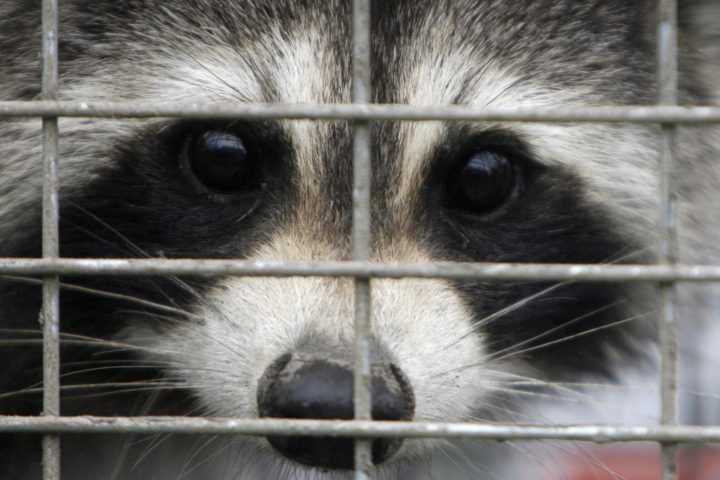WARNING: This article contains descriptions that some might find graphic. Please read at your own discretion.

A New Jersey man is facing animal cruelty charges for allegedly stabbing and pouring bleach on raccoons he captured in his backyard, leaving them too injured to live.
Police in New Milford, N.J., say they recovered two severely injured raccoons from the suspect’s property on Tuesday after receiving a call from a neighbour. Officers had hoped the raccoons would survive, but animal control ultimately decided to put them down because of their injuries.
The suspect “had poured bleach on the raccoons and stabbed them,” police said in a statement on Wednesday. The man told officers that he was trying to exterminate the raccoons because they were a constant nuisance.
“The injuries to the face and paws were extensive from the bleach and the other wounds,” Carol Tyler, of TYCO Animal Control, told the North Jersey Record.
Patrick Biondo, 54, was arrested on two charges of animal cruelty in the third degree. He has since been released and is due back in court on Aug. 14.
Biondo defended his actions in an interview with the North Jersey Record, saying that he was forced to act because the raccoons were pooping on his deck and tearing apart his potted plants.
“It’s human cruelty to have to live with animals that are defecating on your deck and using your home as their commode.”

Get breaking National news
Raccoons habitually defecate at communal sites known as latrines, according to the U.S. Centers for Disease Control and Prevention. Their feces often carry the eggs of a roundworm parasite that is harmful to humans.
Biondo says raccoons have been using his deck as a latrine since last summer. That’s when he bought traps and captured three of them. He says he called police and animal control to ask for advice on what to do with the animals, but they didn’t assist him.
“I tried the right way,” Biondo said. “I called police, no help. I called animal control, no help. I didn’t know what to do.”
Biondo told the paper that he tried rat poison on the first three raccoons but it didn’t work. Eventually, the animals starved to death, he said.
Tyler disputed Biondo’s version of events, saying that he was told to contact state wildlife authorities for relocation information. State wildlife guidelines say that nuisance animals can be relocated on a case-by-case basis.
“He was given advice and he did what he wanted to do,” Tyler said.
—With files from The Associated Press









Comments